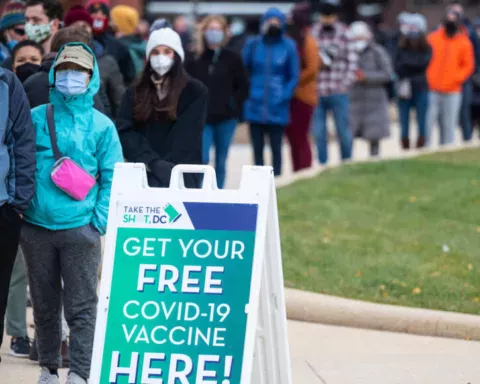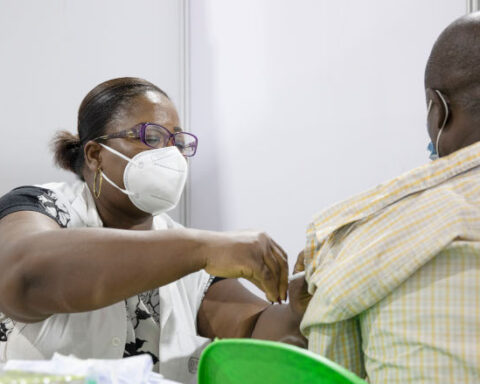Fully vaccinated travelers are less likely to get and spread COVID-19. However, international travel poses additional risks, and even fully vaccinated travelers might be at increased risk for getting and possibly spreading some COVID-19 variants.
The COVID-19 situation, including the spread of new or concerning variants, differs from country to country. All travelers need to pay close attention to the conditions at their destination before traveling.
CDC will update these recommendations as more people get vaccinated, as rates of COVID-19 change, and as additional scientific evidence becomes available.
International Travel Recommendations for Fully Vaccinated People
- Before you travel
- Make sure you understand and follow all airline and destination requirements related to travel, mask wearing, testing, or quarantine, which may differ from U.S. requirements. If you do not follow your destination’s requirements, you may be denied entry and required to return to the United States.
- Check the current COVID-19 situation in your destination.
- During traveling:
- Wearing a mask over your nose and mouth is required on planes, buses, trains, and other forms of public transportation traveling into, within, or out of the United States and in U.S. transportation hubs such as airports and stations.
- Follow all recommendations and requirements at your destination, including mask wearing and social distancing
- Before you arrive in the United States:
- All air passengers coming to the United States, including U.S. citizens and fully vaccinated people, are required to have a negative COVID-19 test result no more than 3 days before travel or documentation of recovery from COVID-19 in the past 3 months before they board a flight to the United States.
- After travel:
- Get tested with a viral test 3-5 days after travel.
- Self-monitor for COVID-19 symptoms; isolate and get tested if you develop symptoms.
- Follow all state and local recommendations or requirements after travel.
International Travel Recommendations for Unvaccinated People
If you are not fully vaccinated and must travel, take the following steps to protect yourself and others from COVID-19:
- Before you travel:
- Get tested with a viral test 1-3 days before your trip.
- Make sure you understand and follow all airline and destination requirements related to travel, testing, or quarantine, which may differ from U.S. requirements. If you do not follow your destination’s requirements, you may be denied entry and required to return to the United States.
- Check the COVID-19 situation in your destination.
- While you are traveling:
- Wear a mask over your nose and mouth. Wearing a mask is required on planes, buses, trains, and other forms of public transportation traveling into, within, or out of the United States and in U.S. transportation hubs such as airports and stations.
- Avoid crowds and stay at least 6 feet/2 meters (about 2 arm lengths) from anyone who is not traveling with you.
- Wash your hands often or use hand sanitizer (with at least 60% alcohol).
- Before you arrive in the United States:
- All air passengers coming to the United States, including U.S. citizens and fully vaccinated people, are required to have a negative COVID-19 viral test result no more than 3 days before travel or documentation of recovery from COVID-19 in the past 3 months before they board a flight to the United States.
- After you travel:
- Get tested with a viral test 3-5 days after travel AND stay home and self-quarantine for a full 7 days after travel.
- Even if you test negative, stay home and self-quarantine for the full 7 days.
- If your test is positive, isolate yourself to protect others from getting infected.
- If you don’t get tested, stay home and self-quarantine for 10 days after travel.
- Avoid being around people who are at increased risk for severe illness for 14 days, whether you get tested or not.
- Self-monitor for COVID-19 symptoms; isolate and get tested if you develop symptoms.
- Follow all state and local recommendations or requirements.
- Get tested with a viral test 3-5 days after travel AND stay home and self-quarantine for a full 7 days after travel.
- Visit your state, territorial, tribal, and localexternal icon health department’s website to look for the latest information on where to get tested.
Do NOT travel if you were exposed to COVID-19, you are sick, you test positive for COVID-19, or you are waiting for results of a COVID-19 test. Learn when it is safe for you to travel. Don’t travel with someone who is sick.
International Travel Recommendations Quick Reference
alternative text for web accessible infographic
Check Travel Restrictions
If traveling internationally, check with your destination’s Office of Foreign Affairs or Ministry of Health or the US Department of State, Bureau of Consular Affairs, Country Information pageexternal icon for details about entry requirements and restrictions for arriving travelers. Follow all entry requirements for your destination and provide any required or requested health information. If you do not follow your destination’s requirements, you may be denied entry and required to return to the United States.
If traveling by air, check if your airline requires any health information, testing, or other documents. If traveling internationally, you must get a COVID-19 test no more than 3 days before you return by air to the United States. You are required to show a negative COVID-19 test result or documentation of recovery from COVID-19 before boarding a flight to the United States.
Information for people who recently recovered from COVID-19
If you recovered from a documented COVID-19 infection within the last 3 months, follow all requirements and recommendations for fully vaccinated travelers except you do NOT need to get a test 3-5 days after travel unless you are symptomatic. People can continue to test positive for up to 3 months after diagnosis and not be infectious to others.
* This guidance applies to COVID-19 vaccines currently authorized for emergency use by the Food and Drug Administration: Pfizer-BioNTech, Moderna, and Johnson and Johnson (J&J)/Janssen COVID-19 vaccines. This guidance can also be applied to COVID-19 vaccines that have been authorized for emergency use by the World Health Organization (e.g. AstraZeneca/Oxford). See WHO’s websiteexternal icon for more information about WHO-authorized COVID-19 vaccines.






